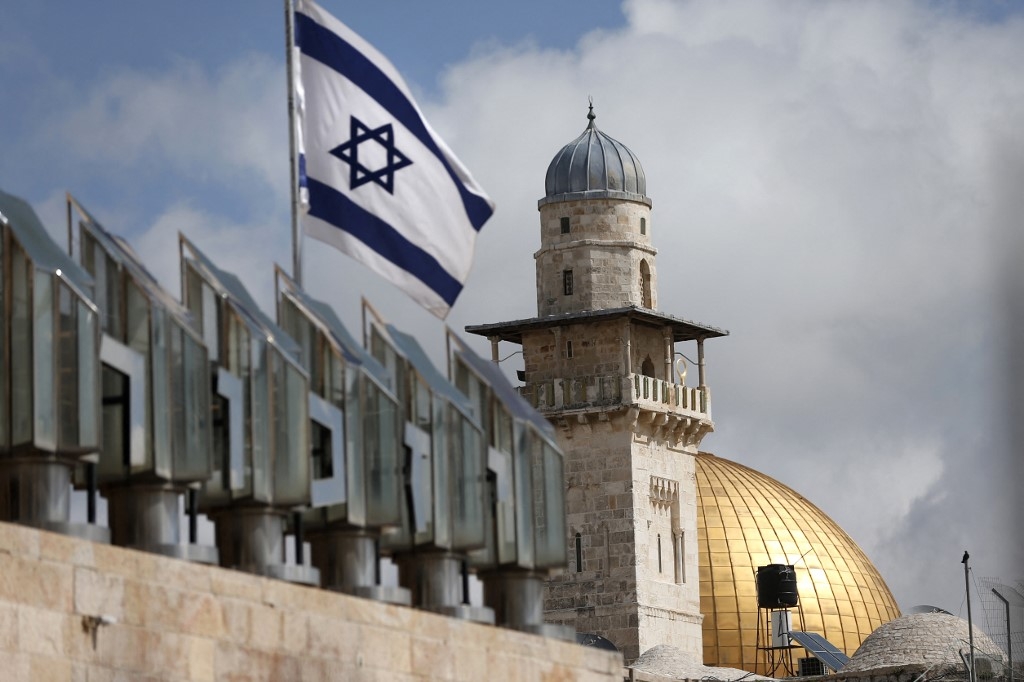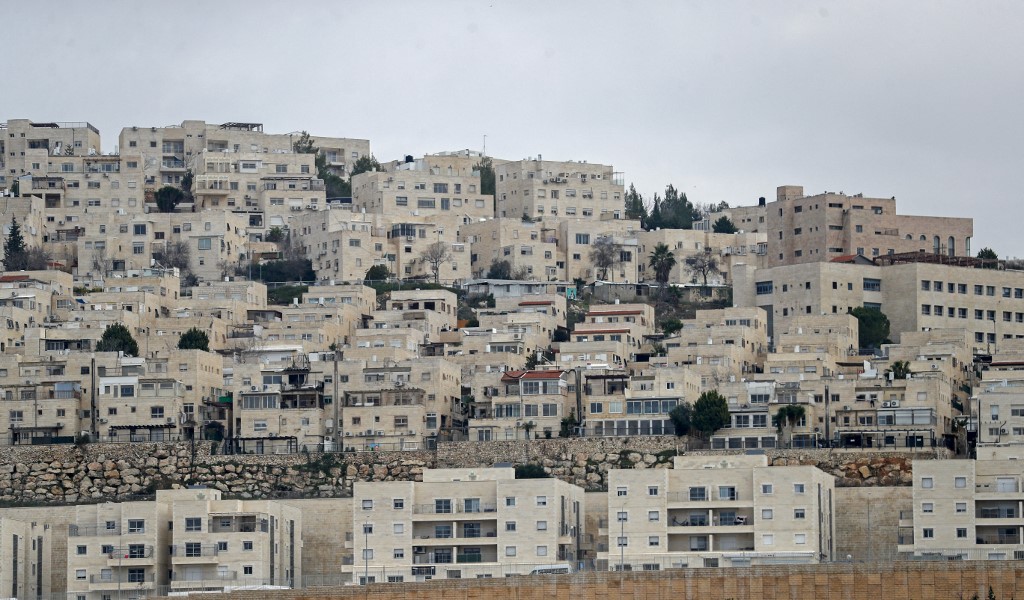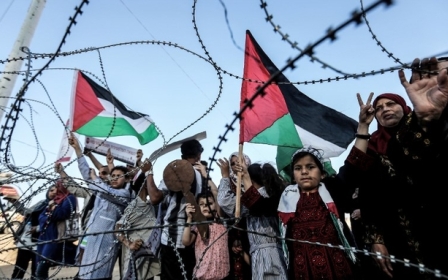Why Palestinians should demand Israeli citizenship

The death of Archbishop Desmond Tutu on 26 December was a big loss, and not just for South Africans. Palestinians also mourn him, recalling his humane and principled support for their cause. He once famously said: “I wish I could shut up, but I can’t and I won’t.” The price he paid was to be viciously attacked as an antisemite, dubbed a “Black Nazi pig” during a visit to occupied East Jerusalem and vilified in the media.
Undeterred, Tutu never faltered in his support for Palestinians. Now, at the dawn of a new year, the best tribute to this great champion of Palestinian rights would be for Palestinians to learn the lessons of South Africa’s struggle for freedom - and emulate them.
This inequity has gone on so long that it has acquired a state of semi-permanence
It is extraordinary that a Palestinian movement for equal rights in Israel-Palestine has not taken off. The apartheid regime Israel imposed when it took over the 1967 territories should have spurred such a movement. The population Israel rules, from the Jordan River to the Mediterranean Sea, is divided into roughly two halves: Israelis with citizenship and rights, and Palestinians in the 1967 territories with neither.
This inequity has gone on so long that it has acquired a state of semi-permanence. There is widespread international tolerance of the status quo, allowing Israel to continue expanding into Jerusalem and the West Bank, adding new settlers and denuding resources; to increase its hold on Jerusalem’s Old City and Islamic holy places; and to maintain its unjustifiable and inhumane siege of Gaza.
International apathy
Occupied Palestinians must urgently examine their options, which are few. They can take no action, hoping against hope for things to change in their favour. But given the international community’s apathy, this risks giving Israel more time to complete its colonisation of the whole country. And even if by some miracle a two-state solution were to materialise, the resulting Palestinian state, demilitarised and without control of its borders as Israel wants, would not be acceptable. An October poll found that support for a two-state solution among Palestinians had dropped to 29 percent.
An alternative option would be for occupied Palestinians to demand equal rights as citizens, on par with everyone else Israel rules. This would be a reasonable demand, given that they live under Israeli governance, but without rights or citizenship. Such a move would ideally give Palestinians the advantages of equal civil and political rights, representation in parliament, and eventually an immigration policy that could admit Palestinian refugees.
In 2012, Palestinian intellectual Sari Nusseibeh put forward a controversial proposal for Israel to confer second-class citizenship on Palestinians under occupation, but it never broke through into the public discourse. More recently, external commentators in the Washington Post, along with liberal Jewish Zionist Peter Beinart, have advocated for an equal-rights approach in Israel-Palestine. So why aren’t Palestinians?
Nowhere can one find a proper Palestinian debate or discussion, inside or outside Palestine, about this question - or a demand for rights outside the present framework. I have published at least six articles on this theme, most recently in 2020, and spoken publicly and lectured on it. But none of this has stimulated a positive response or even an expression of interest.
Scarred by history
There could be several explanations for this phenomenon. The aspiration to Palestinian statehood, cherished for so long, remains seductive. Exchanging that hope for a citizenship that only brings Palestinians closer to their Israeli tormentors would be hard to stomach. Even worse, it would be seen as a surrender, spelling defeat for the national struggle - and a betrayal of all Palestinians who gave their lives for freedom.
But I believe that what underlies such objections is a deeply damaged sense of self among many Palestinians, scarred as they are by a history of colonial disdain for their rights since the time of Balfour; by having a settler state imposed on them without any concern for the consequences; and by decades of western partiality towards Israel, signalling to Palestinians that they are lesser beings. Israel’s ongoing campaign to erase Palestinian history and culture has further undermined their self-confidence.
No wonder, therefore, that Palestinians would balk at the notion of living among Jewish Israelis, whom they view as being more advantaged. They would not want to put up with their racist attitudes towards Arabs, preferring instead to continue hoping for their own independent state. And so, the conflict persists.
Yet, while such anxieties are understandable, they must not be allowed to override the greater aim: reclaiming Palestine should be the first priority for Palestinians everywhere. If that can come only through Israeli citizenship, then so be it.
The views expressed in this article belong to the author and do not necessarily reflect the editorial policy of Middle East Eye.
Middle East Eye propose une couverture et une analyse indépendantes et incomparables du Moyen-Orient, de l’Afrique du Nord et d’autres régions du monde. Pour en savoir plus sur la reprise de ce contenu et les frais qui s’appliquent, veuillez remplir ce formulaire [en anglais]. Pour en savoir plus sur MEE, cliquez ici [en anglais].







